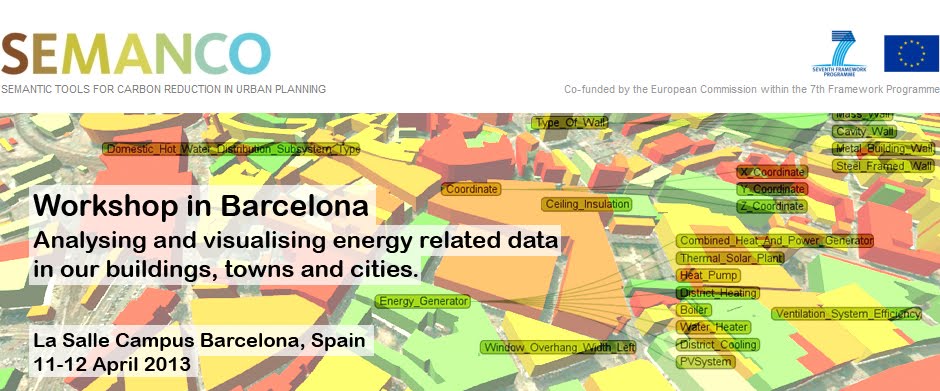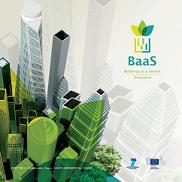BaaS Project was presented in the SEMANCO workshop

BaaS project was represented in the SEMANCO workshop which was celebrated in Barcelona (Spain) during the days 11-12 of April of 2013. This workshop is related to the SEMANCO project that aims at CO2 reduction in the built environment through structuring energy data. There are a number of current issues in modelling, analysis and visualisation of energy related data within the built environment. The workshop brings together projects and professionals with similar aims to identify the cross-cutting issues and the synergies between workers that will help in addressing these.
The workshop was organised in three thematic lines:
- Energy data for urban planning: multiple representations of energy information
Urban planners need comprehensive information from different realms in order to take informed decisions. Typically, they base their decisions on public (open data) and proprietary information from disparate sources (regulations, data portals, etc.), provided by different stakeholders (consumers, institutions, energy providers…). Integrated data environments which combine these different data would be helpful to understand the multidimensionality of the problems they are tackling, including energy efficient planning.
- Interactive interfaces of energy data visualization and the PAN-European context
The end user requires that data be presented in such a way that they can understand it and, furthermore, can make decisions based upon it. Additionally, the data will often need to be exported to other tools and be capable of undergoing further processing and review. The data needs to be presented to suit the local/national regulations being applied in different EU countries. Also, the data needs to suit the requirements of the different simulation and analysis tools used in each country.
- Developing business models based on energy services
From the analysis of the energy related data, strategies for intervention can be derived and applied in different realms with the common purpose of reducing CO2 emissions. These functionalities can give rise to new services and their associated business models. The platforms which provide access to these services need to be effective in achieving real CO2 reductions they must be implementable in a competitive market environment. This requires an assessment to be undertaken to understand the potential value of tools to end users and their willingness to pay, as well as questions of the political value of tools for CO2 emissions reduction from the built environment.





